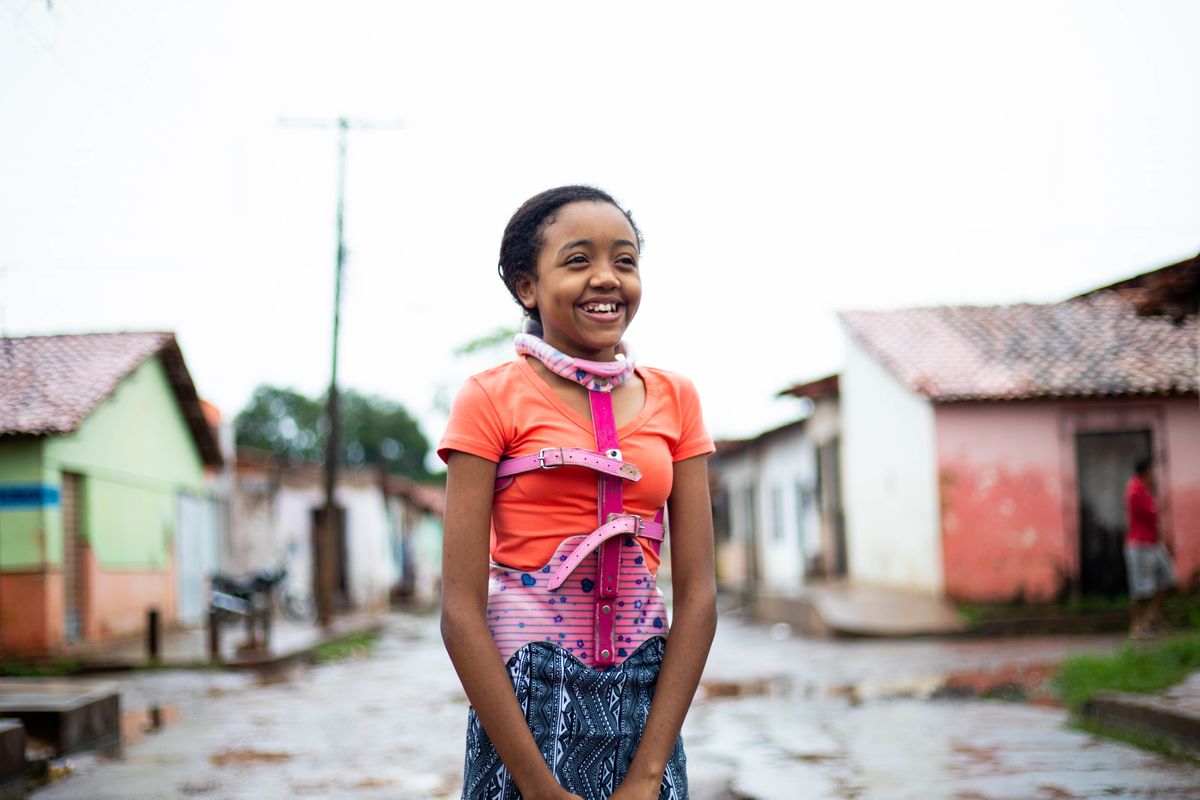Official Country Name: Federal Republic of Brazil
Capital City: Brasilia
Population: More than 215.3 million
Official Languages: Portuguese
Life expectancy: Male 70 years, female 76 years
Population with access to basic drinking water: 97%
Infant mortality rate: 13 deaths / 1,000 live births
Percentage of children under the age of 5 underweight: 2.2%
Adult literacy rate: Male 94%, female 95%
Religion: Approximately 49% of the population are Catholic, 26% are Protestant, 14% have no religion, and 11% identify as another/unspecified religion.
Percentage living on less than $2.15 a day: 5.4%
Source: World Bank and International Religious Freedom Report, released in 2022 by the Office of International Religious Freedom, U.S. Department of State Religious Freedom, U.S. Department of State
Portuguese sailors arrived on Brazil’s shores in 1500 and promptly established a colony. The settlers tried to use the local people as labourers, but much of the indigenous population quickly fell sick with diseases brought by the travellers while others retreated inland. It’s estimated that, prior to Portuguese arrival, the indigenous population numbered more than three million; today, there are fewer than 200,000.
Without local people, the Portuguese turned to the African slave trade to provide labour on plantations. As a result, nearly 3.6 million individuals were shipped from Africa to work the land. Slavery was finally abolished in 1888.
A republican government was established in 1889 with the first president. Brazil continued to develop, gaining wealth from the coffee and rubber industries. The country has been governed by many political parties, and in 1964 the military took control through a bloodless coup.
Power was returned to a democratic government in 1985. Since then, Brazil’s presidents have attempted to control inflation and continue development.
Brazilians treasure family and traditional values. Relationships are valued above all else and people take care in being gracious in their conversations and communications.
Art
Brazil enjoys a rich tradition of wood carving and sculpture.
Music
The Bossanova, a ballroom dance, originated in Brazil. Other popular music includes the Samba, Pagode and MPB (Brazilian popular music, which uses a mix of Brazilian rhythms). African rhythms have a strong influence in Brazilian music, too.
Language
Portuguese: ¡Bom dia! (Good morning!), Até logo. (See you later.), Tchau (Goodbye), Boa tarde (Good afternoon), Boa noite (Good evening/good night), ¿Como vai você? (How are you?), Oi (Hi)
Sports and Games
Football is hugely popular in Brazil. Every town has a professional team, and the season lasts all year. Volleyball and futsal (a form of football with five players per side, usually played indoors) are also very popular.
Typical Foods
Common foods in Brazil include rice, beans, pasta, chicken, sausage, beef, vegetables, tropical fruits, and coffee. There is at least one typical food from each of Brazil's five regions. For example, Brazilians who live in the northern region may eat pato no tucupi (duck with sauce) while those in the northeast region may eat shrimp.
In recent years, Brazil has made slow progress guaranteeing education for all children and adolescents. There was modest growth in the number of girls and boys aged four to 17 who were enrolled in school from 2016 to 2019.
However, inequality remains a problem in the country. In 2019, almost 1.1 million school age children and adolescents were out of school in Brazil, most of whom were aged four to five and 15 to 17.
Source: UNICEF
Approximately 49% of the population are Catholic, 26% are Protestant, 14% have no religion, and 11% identify as another/unspecified religion. The constitution recognises freedom of religion, and the government generally respects the right of individuals to practice this. There is no favoured or state religion in Brazil. However, the government maintains a formal agreement with the Vatican, and Brazil is the largest Catholic country globally, according to the Brazilian Geography and Statistic Institute. The number of evangelicals in the country is growing, however.
The law prohibits discrimination based on religion, and foreign missionary groups operate freely throughout the country. All faiths are free to establish places of worship, train clergy, and proselytise.
There are many Catholic religious holy days in Brazil, including Ash Wednesday, Good Friday, Corpus Christi, Assumption Day, Our Lady Aparecida, All Souls Day and Christmas. Additionally, each city has at least one Catholic holy day.
Statistics from the International Religious Freedom Report, released in 2022 by the Office of International Religious Freedom, U.S. Department of State
